Although genital warts can sometimes resolve on their own within a couple of years, certain treatments may accelerate their disappearance. Below are eight home-based approaches that people use to address genital warts.
If you’re dealing with genital warts, you’re far from alone. Condylomata acuminata, commonly called genital warts, are quite prevalent. In the United States, up to 1 million new cases are diagnosed annually, though many go unreported.
Most genital warts result from infection with the human papillomavirus (HPV). There are over 120 known HPV strains; low-risk variants (lrHPV) types 6 and 11 are the ones typically responsible for genital warts. These strains are not commonly linked to cervical cancer. The 14 HPV types most associated with cancer include types 16, 18, 31, 33, 35, 39, 45, 51, 52, 56, 58, 59, 66 and 68.
You might need to see a healthcare provider for treatment of genital warts, but many people also try remedies at home. Read on to learn about eight approaches that may help manage genital warts.
1. Tea tree oil
Essential oils are often promoted for antimicrobial and antifungal uses, among other health claims. Tea tree oil is one such essential oil that has demonstrated activity against fungi and various organisms, including head lice.
To use, dilute tea tree oil by combining 1 drop of tea tree oil with 1–2 drops of a carrier oil like almond or coconut oil. Apply a single drop of the diluted mixture directly onto the wart.
Because some people are sensitive to tea tree oil, perform a patch test on your arm first. If no reaction occurs within 24 hours, it’s likely safe to proceed.
Tea tree oil can cause stinging or inflammation — which is how it may reduce the size of a wart. Do not ingest tea tree oil or insert it vaginally. Apply consistently for several weeks, and stop use if irritation becomes severe.
While some studies suggest benefits, essential oils aren’t regulated by the FDA for purity or potency. Talk with your healthcare provider before using essential oils and review the quality of a brand’s products. Always perform a patch test before trying a new essential oil.

3. Green tea

Research published in 2009 indicates that green tea can be effective against genital warts.
A prescription topical, sinecatechins (Veregen), contains concentrated green tea extracts formulated for wart treatment.
You can also buy green tea extract and mix a drop or two into coconut oil to apply to the affected area at home.
4. Garlic

Some older studies suggest applying garlic extract to warts may help clear them, though the evidence is limited and further research is necessary.
If you want to try this approach, you can purchase garlic extract and apply it to warts directly. Another option is to soak gauze in a garlic-and-oil mixture, place it on the wart, and leave it in place for a period of time.
5. Apple cider vinegar

Apple cider vinegar is sometimes used to treat genital warts, possibly working similarly to acidic prescription agents that destroy wart tissue. However, there’s no robust research validating its effectiveness for genital warts, so more studies are needed.
To try it, soak a cotton swab, cotton ball, or small gauze pad in apple cider vinegar and apply it to the wart.
Find apple cider vinegar on Amazon.
6. Vegetables

A diet rich in vegetables supports overall health. Health guidelines commonly suggest consuming 4–5 servings of vegetables daily.
Consider eating crunchy cruciferous vegetables such as:
- cabbage
- broccoli
- Brussels sprouts
- cauliflower
- kale
These vegetables provide indole-3-carbinol (I3C), a compound that may help with clearing genital warts.
7. Folate and B12

There is an association between deficiencies in folate and vitamin B12 and a higher susceptibility to HPV infection.
Taking a multivitamin or supplements containing folate and B12 may support your body’s ability to fight an HPV infection and help warts clear.
8. Dietary and lifestyle support

Living with genital warts can tax your immune system. Reducing additional stresses on immunity may support recovery.
To help your body heal more effectively, avoid immune suppressors such as smoking and diets high in processed, nutrient-poor foods.
Foods to include in your eating plan:
- antioxidant-rich items (blueberries, cherries, tomatoes, bell peppers, squash)
- dark leafy greens like spinach and kale
- whole grains
- almonds
- beans
- lean proteins
These choices may bolster immunity and reduce the chance of HPV returning.
Foods to limit or avoid:
- potential allergens (dairy, soy, corn, additives)
- refined carbohydrates like white bread and pasta
- red meat
- processed foods containing trans fats
- excessive caffeine and stimulants
Risks and warnings
Bear in mind that eliminating a visible external genital wart doesn’t necessarily mean the HPV infection is gone. In rare cases, HPV can be linked to both genital warts and cervical cancer, and people can be infected with multiple HPV types.
Even if you try home remedies, consult a healthcare professional about your warts.
The HPV that causes genital warts can remain dormant for long periods, so warts can recur after treatment.
How are genital warts typically treated?
There isn’t a single universally agreed-upon standard treatment for genital warts; clinicians may choose different approaches depending on the wart type and how long they’ve been present.
Possible medical treatments include:
- topical prescription medications
- cryotherapy (freezing)
- surgical excision
- laser removal
Frequently asked questions
Can toothpaste remove genital warts?
No — toothpaste will not remove genital warts and can irritate or damage delicate genital skin.
Can genital warts disappear naturally?
In some people, genital warts may resolve without treatment within about 2 years. Still, treatment can speed up clearance.
If I have HPV, will I get genital warts?
No. Having an HPV infection does not guarantee that genital warts will develop.
The bottom line
There are home approaches that may help manage genital warts, but it’s important to see a clinician to test for and treat any sexually transmitted infections responsible for the warts.
If an STI is the cause, you may need prescription treatment to address the infection and reduce the risk of transmitting it to sexual partners.


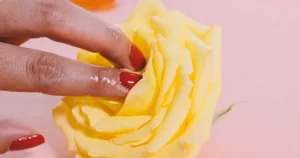

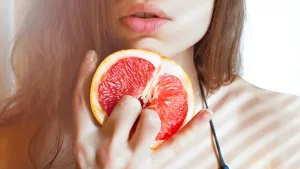
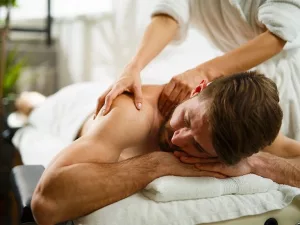

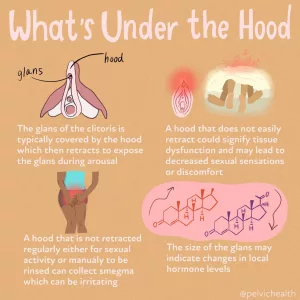






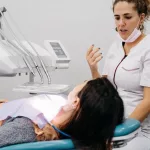




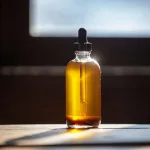
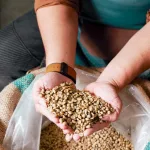


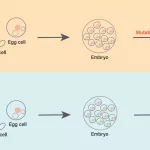
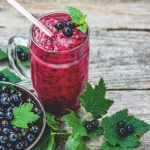
Leave a Reply
You must be logged in to post a comment.